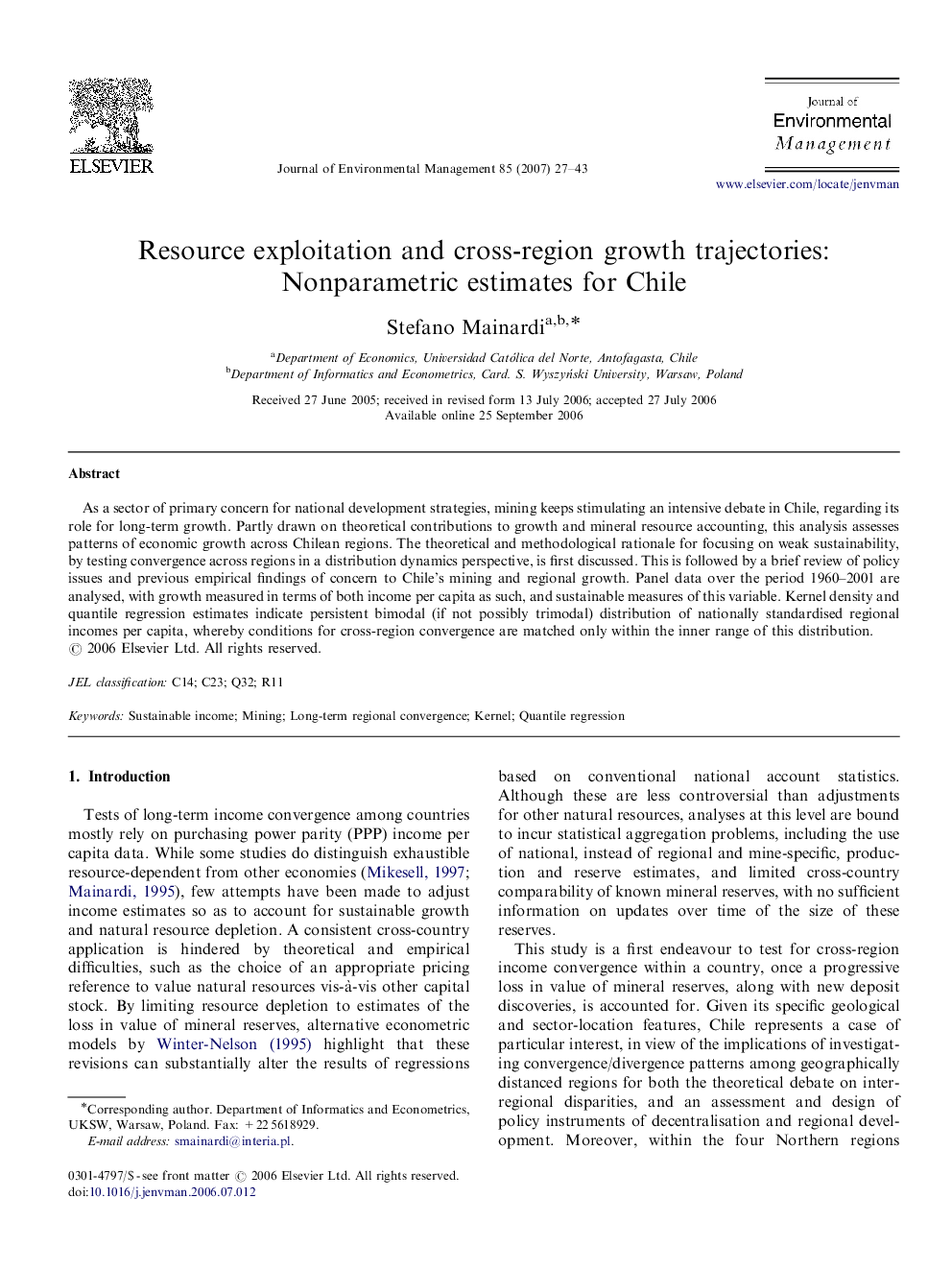| Article ID | Journal | Published Year | Pages | File Type |
|---|---|---|---|---|
| 1058577 | Journal of Environmental Management | 2007 | 17 Pages |
As a sector of primary concern for national development strategies, mining keeps stimulating an intensive debate in Chile, regarding its role for long-term growth. Partly drawn on theoretical contributions to growth and mineral resource accounting, this analysis assesses patterns of economic growth across Chilean regions. The theoretical and methodological rationale for focusing on weak sustainability, by testing convergence across regions in a distribution dynamics perspective, is first discussed. This is followed by a brief review of policy issues and previous empirical findings of concern to Chile's mining and regional growth. Panel data over the period 1960–2001 are analysed, with growth measured in terms of both income per capita as such, and sustainable measures of this variable. Kernel density and quantile regression estimates indicate persistent bimodal (if not possibly trimodal) distribution of nationally standardised regional incomes per capita, whereby conditions for cross-region convergence are matched only within the inner range of this distribution.
